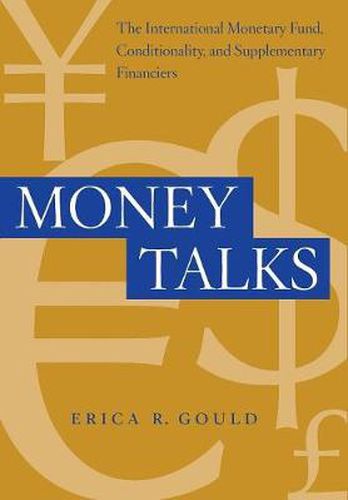Readings Newsletter
Become a Readings Member to make your shopping experience even easier.
Sign in or sign up for free!
You’re not far away from qualifying for FREE standard shipping within Australia
You’ve qualified for FREE standard shipping within Australia
The cart is loading…






Money Talks argues that, contrary to conventional explanations, the changes in the terms of International Monetary Fund (IMF) conditionality agreements are best explained by shifts in the sources for borrowing state financing. The Fund regularly relies on external financing to supplement its loans to countries facing payment imbalances. As a result, these supplementary financiers are able to exercise leverage over the Fund and the design of its conditionality programs.
The book’s conclusions are supported by rich empirical material gathered directly from the IMF archives, including descriptive statistics and statistical analyses using an original data set, which is the first to code the terms of the 249 Fund conditionality agreements from 1952-when Fund conditionality began-to 1995, as well as case studies substantiated with archival and interview evidence.
$9.00 standard shipping within Australia
FREE standard shipping within Australia for orders over $100.00
Express & International shipping calculated at checkout
Money Talks argues that, contrary to conventional explanations, the changes in the terms of International Monetary Fund (IMF) conditionality agreements are best explained by shifts in the sources for borrowing state financing. The Fund regularly relies on external financing to supplement its loans to countries facing payment imbalances. As a result, these supplementary financiers are able to exercise leverage over the Fund and the design of its conditionality programs.
The book’s conclusions are supported by rich empirical material gathered directly from the IMF archives, including descriptive statistics and statistical analyses using an original data set, which is the first to code the terms of the 249 Fund conditionality agreements from 1952-when Fund conditionality began-to 1995, as well as case studies substantiated with archival and interview evidence.